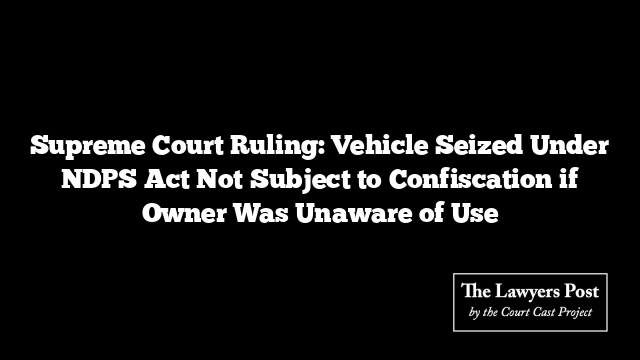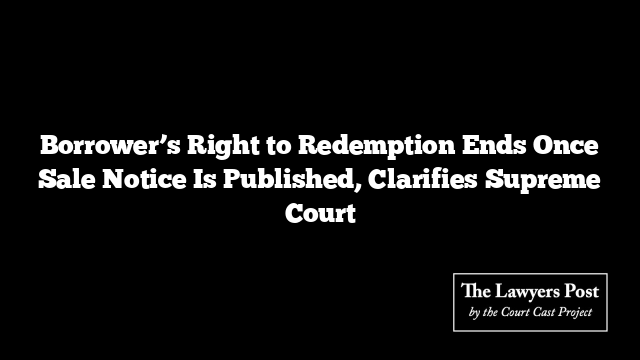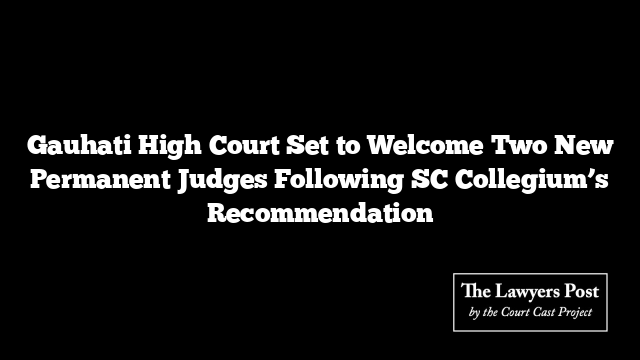In a significant ruling, the Supreme Court held that a vehicle seized under the Narcotic Drugs and Psychotropic Substances Act (NDPS Act) cannot be confiscated if the owner proves that it was used without their knowledge or consent. The decision emphasized that the owner must demonstrate they took all reasonable steps to prevent the misuse of the vehicle.
The bench, consisting of Justices Sanjay Karol and Manmohan, clarified that confiscation can only occur after the trial concludes—whether the accused is convicted, acquitted, or discharged. Furthermore, if the trial court deems the vehicle liable for confiscation, it must offer an opportunity for anyone claiming ownership or rights to the vehicle to be heard before a decision is made.
This ruling overturned a decision by the Gauhati High Court, which had upheld a trial court’s refusal to release an appellant’s seized truck under Cr.P.C. Sections 451 and 457. The Supreme Court found that the NDPS Act does not prevent the interim release of vehicles during the pendency of criminal proceedings.
The case involved Bishwaijit Dey, who had appealed the High Court’s refusal for the temporary release of his truck, which had been seized under suspicion of transporting contraband.





